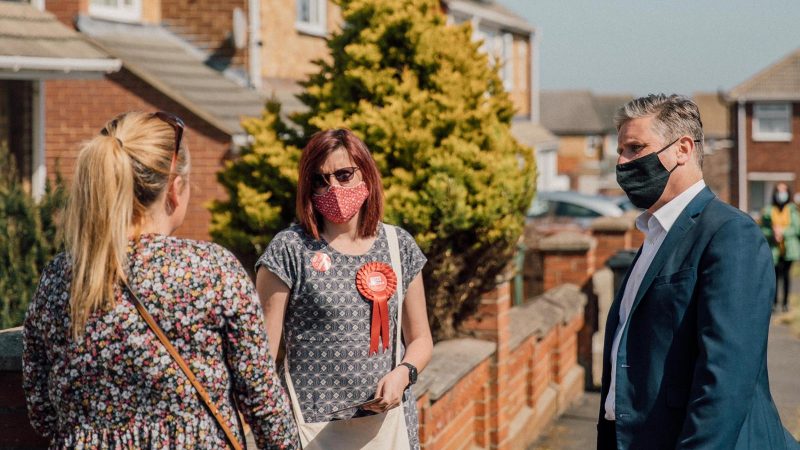
We have now all had a week to absorb some relatively sobering results from the local, regional and devolved elections. Many of my colleagues in local government have lost their seats through absolutely no fault of their own, after a period in which over 140,000 people lost their lives – a national catastrophe. Subsequent advice has been depressingly plentiful, including the usual host of Labour’s ’80s and ’90s personalities, former leaders and just about everyone on Twitter.
The most striking experience for me was speaking to people in my local ward, knowing that I really didn’t have many answers to the questions I was asked about ‘big politics’. Can we really say that during the last couple of years the Labour Party has been able to explain why people should vote for us, or indeed trust us? Right now, we don’t actually have much of a picture of what Labour is for, so it can sometimes be quite hard to vote for us. Addressing the ‘vision gap’ is seriously overdue.
Still, one thing these elections showed was that progress for Labour seems pretty closely associated with our ability to actually deliver on promises of change. Where we have had our better results, in Wales, Manchester and London, voters have a clear idea what we are about, trust our people, and hear from our members on the doors. They see Labour in government positions, delivering what we promise, tackling problems and doing it all well. Show, don’t tell.
But in most of England the Tories are in power at all levels, and in Scotland the SNP. ‘Be in power’ is a lesson that only takes us so far in our present national situation: opposition. In most areas, our problem goes beyond the vision gap. Vision is needed, but the widespread concentration that some specifically have on developing policy runs the risk of neglecting this important point. National executive committee (NEC) representative Ann Black deals with this point well, arguing for “focusing not only on what a Labour government would like to do, but how to achieve a Labour government which can actually do it”. From opposition, the challenge is developing vision whilst showing we can deliver it.
The battle we face goes a long way beyond persuading people that Labour has some good ideas that would be helpful or nice. Labour must convince people that we have the right values and principles, and we need not just to persuade voters, but to show that when we set our minds to things, they happen. These two aspects have to be sure bets before party policy means anything beyond being simply words on a page. A shopping list of policies written by someone who cannot deliver them is not much use to voters, even if we as members agree with them to the ends of the earth. Listing agreeable ideas in a pdf is not going to repair our local relationships unless it forms part of something much bigger.
The obvious solution at this stage in the election cycle is to think of things less as policies and more as campaign demands. We should use this opportunity to reposition ourselves away from being wonky technocrats or hopeless idealists, and instead towards a well-judged campaigning party. Campaigning gives us solid reasons to regrow our roots in local communities, inspires our activists, gives people a reason to join and get involved, and builds a national picture of our values and priorities. Beyond this, it shows people that we will get things done whatever the polling looks like today, and stops the government nicking and neutering our ideas. All of these things are sorely needed.
Let’s try to think about vision as a process. It starts with values and principles; it connects to people’s lives and needs. It turns this insight into demands and into action to achieve those demands. The change happens through policy where Labour is in office or during an election period. There is no reason to avoid policy, obviously. But showing what we can do through campaigns in opposition is going to be a vital part of how we recover trust and rebuild our relationships with people. A policy or a demand tells people what we want to change. A campaign shows them why and how.
Tom Miller writes strictly in a personal capacity.




More from LabourList
‘Unity or division’: Starmer’s message to voters in Gorton and Denton
Almost half of Labour members oppose plans to restrict jury trials, poll finds
‘How Labour can finally fix Britain’s 5G problem’